The deafening silence from in-house counsel and their professional associations about the Ford government’s $130 million in cuts to Legal Aid Ontario is nothing less than shameful.
While it’s true that the Canadian Bar Association (CBA) has launched a social media campaign (#LegalAidMatters) to rally the profession to the cause, and all 13 CBA branch presidents have written an open letter to federal party leaders urging them to “commit to access to justice for all Canadians”, there’s nary a word online or in the open letter about the budget cuts.
If you ask me, that gives the initiative about as much credibility as a list that omits George Washington’s name from a list of U.S. presidents.
Some may ask why I’m picking on in-house counsel. Well, I can’t tell you how many times over the last 25 years lawyers have insisted that “clients drive the bus.” And since the private bar’s bus isn’t moving on this issue, the drivers should get in their seats.
During that same period, the profession has become rife with observations about how in-house counsel have emerged from the shadows, how legal departments are growing, and how nobody in their right mind would believe that taking a legal department job is a step down from working for a “real” law firm. When it comes to status, senior in-house counsel are lingering very close to the top of the heap, if not at the very top.
As well, there are two powerful in-house professional organizations in Canada: the Canadian Corporate Counsel Association (CCCA) and the Canadian chapter of the Association of Corporate Counsel (ACC). The CCCA, admittedly, is an arm of the CBA. But, increasingly, it has developed a distinct identity, infrastructure and programming. The ACC carries the clout of an international organization. Their combined outrage at the Ford government’s affront to justice, however, doesn’t even amount to a whimper.
Contrast that with Federal Minister of Justice David Lametti’s public criticism of Ontario’s legal aid funding cuts, and the Ontario Public Service Employees Union’s public support of protests in support of injured workers disenfranchised by the cutbacks. Even Supreme Court of Canada Chief Justice Richard Wagner thought the matter grave enough to abandon the judiciary’s disinclination to comment on policy matters, stating publicly that “I think legal aid is essential … to make sure that the justice system is strong and fair. It’s also a smart investment.”
The apathy of the Canadian bar and its leaders contrast sharply with developments in the U.K. where, in June, some 15,000 took to the streets in the annual London Legal Walk, an event expected to raise some $1.2 million to promote access to justice. According to the Law Society Gazette, “most” of the walkers were lawyers.
“The most senior judges walk side by side with law students; corporate lawyers and QCs with high street solicitors and caseworkers working in front-line advice centres,” the Gazette reported.
And then, in what is probably an unconscious recognition of just how unusual it is for in-house lawyers to join the pack, let alone lead it, the Gazette goes on to note, “Many in-house lawyers from multinational companies will also be walking.”
Still, it’s not like Canada is the only place in the world where the powers-that-be in the legal profession are keeping their conscience to themselves. In Hong Kong, for example, the bar association and the law society — much like the CBA — have expressed their concern over the threat to democracy posed by a proposed extradition law that would allow Hong Kong residents to be tried in China. Even individual lawyers have participated in the protests that ensued.
But the global law firms that dominate the Hong Kong landscape are nowhere to be seen on this vital issue. Nor, apparently, are the in-house counsel who dole out the mandates and pay the fees.
Justice doesn’t exist without access to justice. Lawyers, and the in-house counsel who call the shots for them, need to get their heads out of the sand on this issue.
Otherwise, no one will be paying the fees without paying the piper.
Julius Melnitzer is a freelance legal affairs journalist based in Mississauga, Ont. He can be reached at melnitzer@sympatico.ca.
< Back to In-House Counsel Resource Page
The Lawyer's Daily
This article was originally published by The Lawyer's Daily – providing Canadian legal news, analysis and current awareness for lawyers and legal professionals who need a real-time view on the shifting legal landscape.


